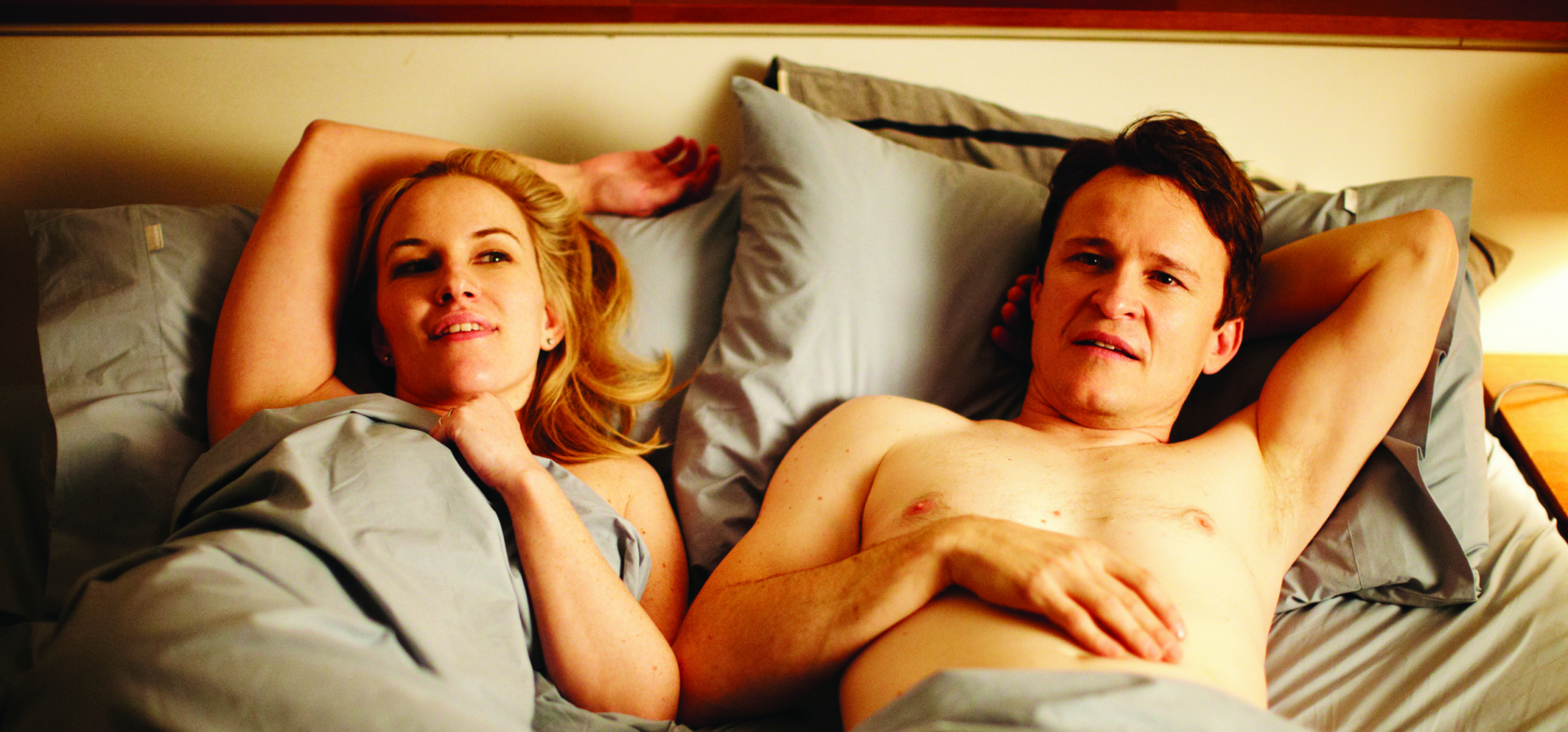Oliver Pfeiffer: Can you explain the idea behind The Little Death (2014)?
Josh Lawson: I felt that we hadn’t really tackled sex in Australian film before in a way that was funny, interesting and romantic, so I thought there was a gap in the market for it. I remember being at a dinner party where we were talking about fetishes and sex. We were laughing and we were shocked as people were admitting things that were kind of private and naughty. I just thought all these emotions – this cheekiness and laughter – if I could put all of that into a movie then we’d have something. Sex really is that great subject where you’re able to find all those emotions […] and that’s what I did. I went out and started researching different fetishes, and found all these unusual ones that I’d never heard of and some that I had. I just wanted to make a film about relationships and intimacy, which are subjects everyone can relate to, but explore them through the unusual fetishes that the film deals with.
How did you learn about these fetishes for these characters?
It’s just online research, reading books on the subject, and speaking to sexologists and reading case studies – all the information is right there. But the more I dived [in], the more I was convinced this was the story that I felt people could really connect with.
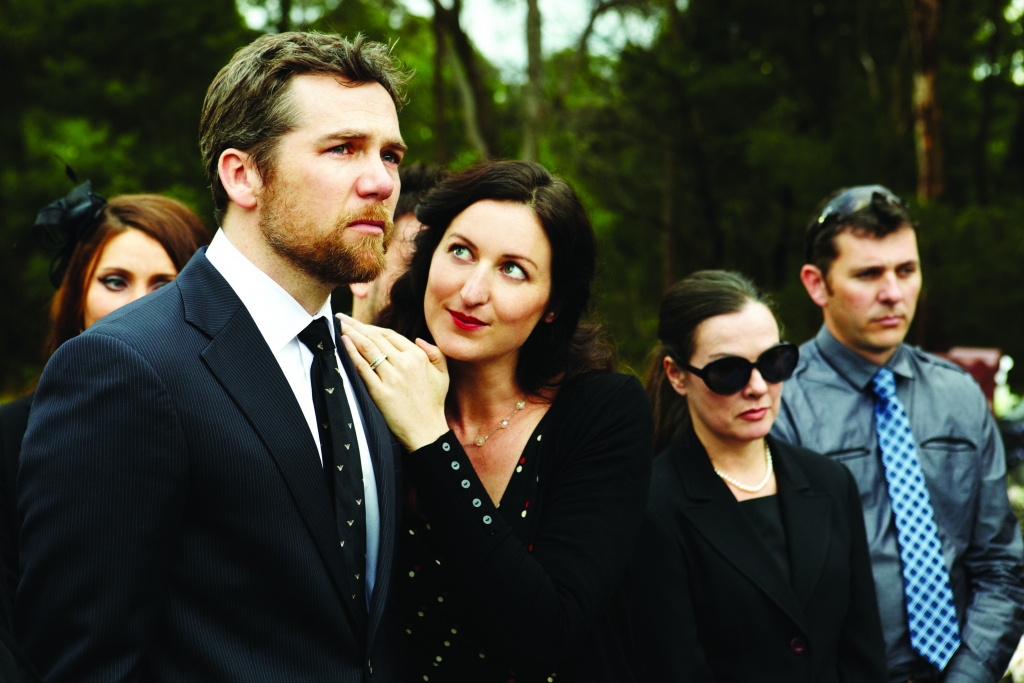
Some of the sexual fetishes in the film are very unconventional, aren’t they?
It’s interesting because what’s unusual for one person is usual for another. I don’t think I judge any fetish in the film. I don’t make the comment that any fetish is more unusual than another because I think it would be judgemental for me to assume that, just because I’m not into it, it’s not very pleasurable for somebody else.
The character I play [Paul] is involved with a fetish [a rape fantasy] that a lot of people find confronting, but let me assure you that, in my research, a lot of people have it as a fetish – and if they didn’t, I wouldn’t have included it in the film.
A lot of humour comes out of situations in which these fetishes – even those that are taboo – are explored. How did you balance this fine line, and was it difficult to know when to pull back?
The rule of thumb was that we’d never make jokes about the subject. That’s very important. As you rightly say, the situations [the characters] find themselves [in] are comical, or you might find yourself laughing at how they interact with each other. But what we don’t do is ever make jokes about these taboo subjects.
‘I just wanted to make a film about relationships and intimacy, which are subjects everyone can relate to, but explore them through the unusual fetishes that the film deals with.’
– Josh Lawson
I felt like we could push it quite far, providing that the characters and tensions were good and that they loved each other. Even when they’re appearing to do horrible things, they only do them to connect with their partner in an effort to find intimacy with a person that they love, who they perhaps [have] lost a connection with […] what I was surprised with was how far we could push it. I think intention really does soften the hard edges of some of the taboo subjects.
There’s that very funny scene towards the end in a parking lot, which makes you think, ‘Hang on a moment, is this about to turn nasty?’ Then, of course, something unexpected occurs and it ends surprisingly as well.
I think laughter comes from tension sometimes. There’s a lot of laughter, but they’re different kinds of laughter in different moments. Some moments come from relief. I don’t want to spoil it for those who haven’t seen [the film], but there are other laughs – like in the phone-sex scene – which are kind of outrageous laughs that come thick and fast on the back of each other, and there’s also uncomfortable laughs. I think it’s fun to explore different kinds of laughter. I tried to tackle a different kind of comedy in every story.
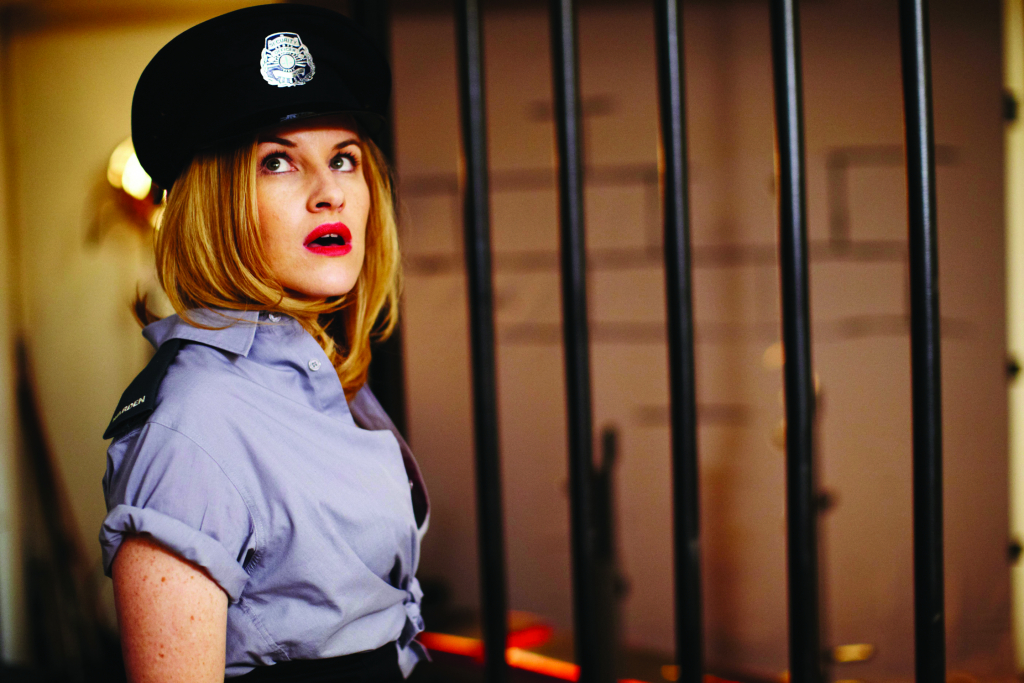
What films and filmmakers were you inspired by?
Woody Allen is a big influence. I love him a lot and his film Everything You Always Wanted to Know About Sex* But Were Afraid to Ask [1972] is a big influence for me. I’d also say Lantana [Ray Lawrence, 2001], which isn’t comic at all; I really enjoyed the different aspects of the relationships that it explores.
The lives of the characters in The Little Death sometimes overlap into one another, like in a Robert Altman movie. Was there a bit of Altman inspiration as well?
Absolutely. Short Cuts [Robert Altman, 1993] was a big inspiration for me, but boiling it even further back, [I’d add] Raymond Carver, whose stories Short Cuts derives from. I wanted you to feel that the characters were in the same cinematic universe to highlight the idea that everyone’s got a story, and you could be passing someone in the street and you wouldn’t know what their story is. So these characters almost bump into each other and the audience thinks, ‘Oh my god, they both have incredible shit going on in their lives right now, but they will never know each other and they don’t know what’s going on.’ I love that. I think Altman does that, and I wanted to explore that great feeling that an audience gets when they know more than the characters do.
You have a cast of twelve intricate characters, including yourself, so it’s very much an ensemble piece. Was it a challenge casting and managing such a diverse selection of actors?
It was because you wanted them to feel unique. You wanted them to feel different but not so different that they were outrageous and unbelievable. You wanted them to feel that they were based in naturalism and truth, so I had to rely on some of the actors to provide some of the differences in their characters and let them discover some of the unique qualities in their characters. In that way, I was very lucky and blessed that we got some of the incredible acting talent that we did. [These actors] may not be the most famous faces in Australia, but I can assure you they are some of the most talented.
‘The idea of The Little Death is that we peek behind the doors of a normal suburban neighbourhood. We see just a glimpse and then we close the door and these stories go on.’
– Josh Lawson
Casting is crucial and I was very specific about what I wanted, and [the production company] made everybody audition because I just couldn’t put a foot wrong. I didn’t want to leave anything to chance. I wanted to make sure these people could be fearless enough to handle this sort of content and skilled enough to work at an incredibly fast pace. We worked very hard over many months to find the right actors.
Interestingly, you don’t have any nudity or explicit sex scenes – a lot of the film The Little Death is based on suggestion. Was this a conscious decision?
For me, the film at its heart is not about sex. At its heart, the film is about relationships and about communication and about intimacy. Where the fun comes in and where its originality comes in is that we look at these subjects that are very relatable to everyone and we explore them through the glass of sex – so we colour them with a sexy brush.
I don’t think The Little Death needed nudity because, really, that wasn’t what the film was about. Also, I don’t find nudity shocking anymore, and I don’t think people do these days, because nudity is so common […] I think it’s far more surprising to have a candid discussion about sex than it is to see a naked body.
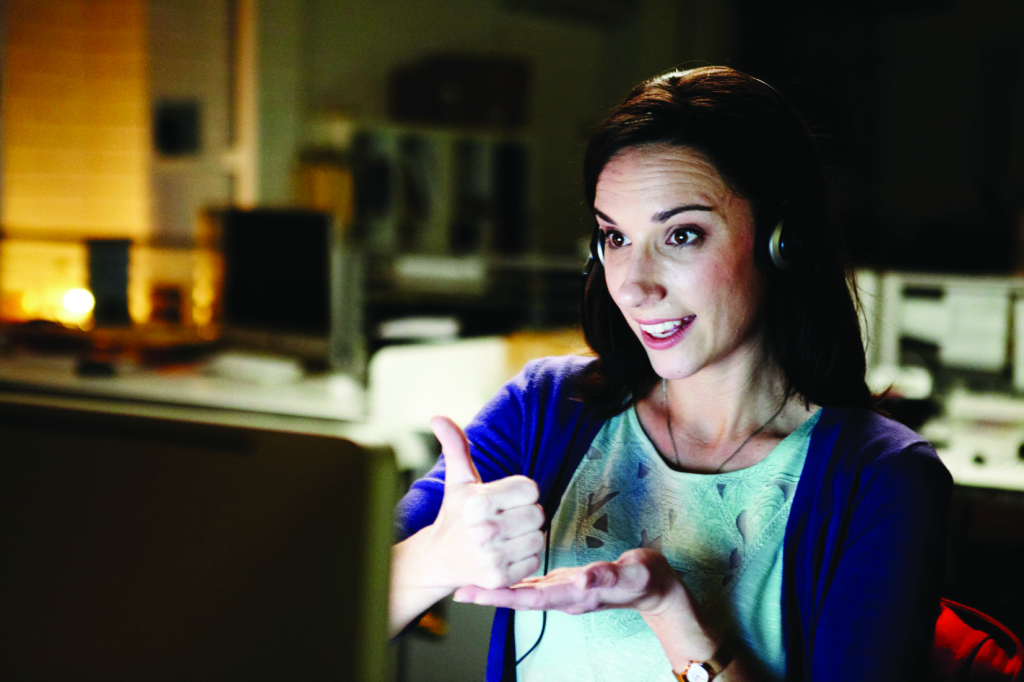
The film climaxes with an encounter between two deaf characters during a Skype sex chat. Again, this could have been disastrous, but you manage to bring comedy gold to the awkwardness. How did you get this sequence right?
This might surprise you, but that scene never changed from the first draft to shooting. It just, for whatever reason, came out the right way the first time. My gut instinct with it seemed to be the right instinct, and I couldn’t say that for every story. It’s partly because of its romance. I think, obviously, there’s lots of funniness in it, but the romance was undeniable. The sweetness. And I always knew I wanted it to end the film because I wanted audiences leaving feeling good. Frankly, I think, in a lot of Australian films, we don’t leave the cinema feeling good. We feel like we’ve suffered somehow, and I just didn’t want that to be this experience. I wanted this experience to be almost like a sexual one, rhythmically, in that it gets faster and faster and then explodes with this one story that makes you feel elated and ecstatic […] and then there’s this post-coital silence. For me, I wanted it to feel like a roll in the hay.
None of the relationships or sexual fantasies are really resolved at the end. There’s a lot of truth to that, again. Why did you feel comfortable leaving it open-ended?
My answer to that is: when is any story resolved? Because tomorrow is another day and anything can change at any time. The idea of The Little Death is that we peek behind the doors of a normal suburban neighbourhood. We see just a glimpse and then we close the door and these stories go on and [the characters’] lives go on and they will have more stories.
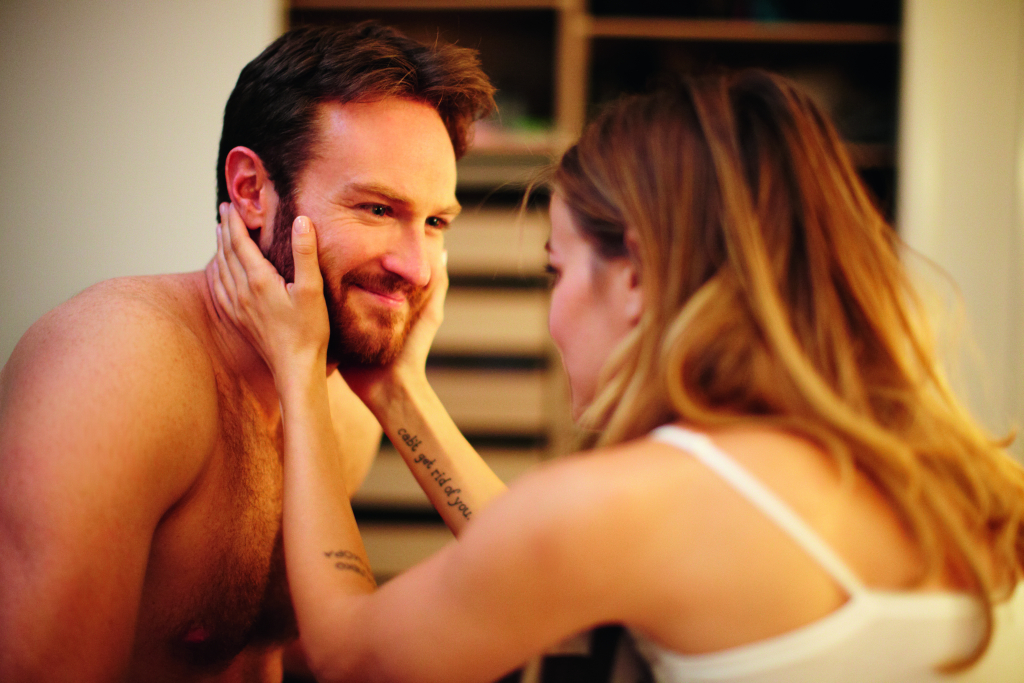
Was it difficult balancing the demands of being an actor, writer and director on this project?
I didn’t really have time to think about it because we were moving at such a clip. I’d shot the film in my head so many times, as I’d lived with it for so long. I was so specific about what I wanted the film to be, to look and sound like, that it wasn’t difficult. It was just more exciting to see my vision finally come to life – and perhaps it’s the control freak in me that didn’t really baulk at the idea of wearing those three caps. I was quite excited by the idea.
You seem to have struck a nice balance between working in the US and in Australia. Are you going to continue trying to get projects green-lit over here, too?
It really depends on how this film performs here. I hope it connects with an audience and, if it does, then certainly I would want to make more stuff here. It would mean that Australians share my sense of humour and perhaps are interested in the stories I have to tell. However, if they don’t, then it would be arrogant of me to assume that they would want to see more of my work.
I love working here and I love telling stories, but I never set out to make an Australian story – I just wanted to tell a human story. A lot of Australian films make the mistake of [being] so specifically Australian that they don’t travel well. Maybe even Australians don’t recognise them because I don’t think we walk around the street feeling Australian. I think we just feel human.
